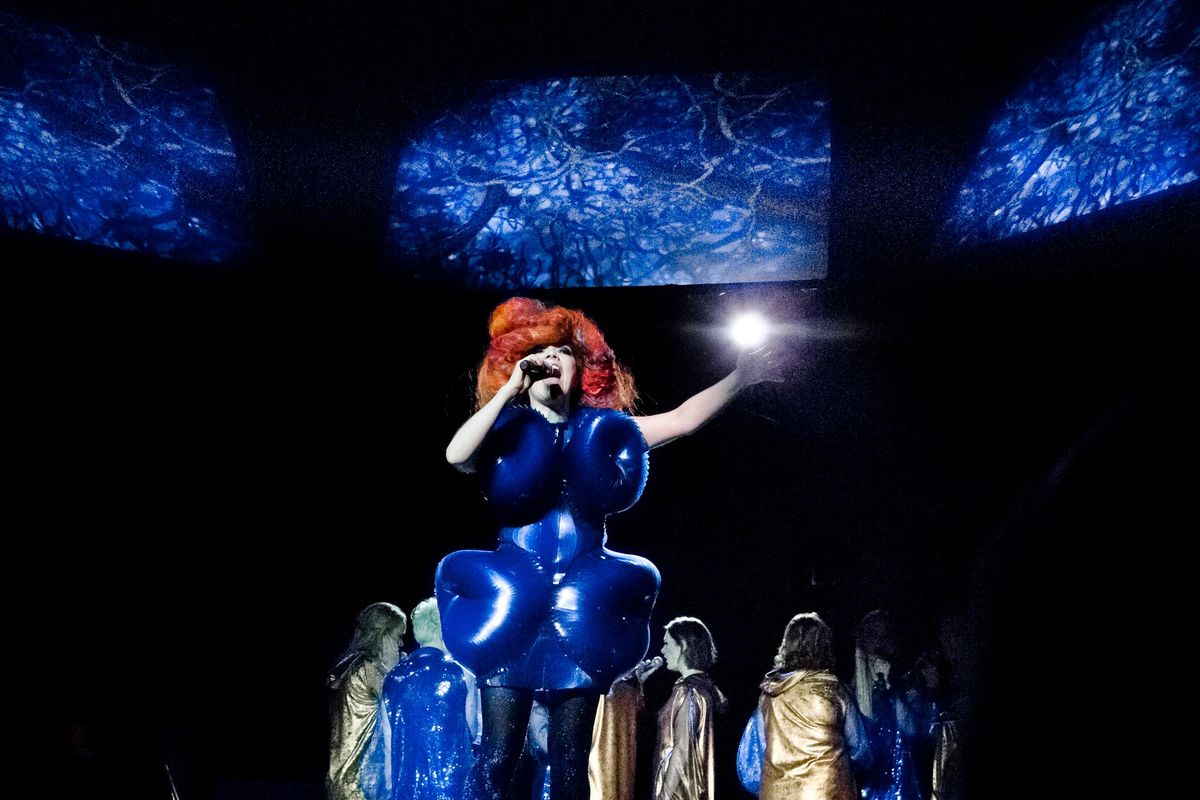Björk and her 1993 album “Debut” stand the test of time

Björk walked into a massive Elektra Records conference room sporting a rainbow-colored skirt in 5-inch heels for an interview in New York in 1989. It looked like the Icelandic singer was about to take the stage. However, it was just 10 a.m. and it was just hours after her then band, the Sugarcubes crushed it before a star-laden crowd at the intimate downtown venue, Webster Hall. Such luminaries as David Bowie and Sinead O’Connor were part of the adoring audience as the idiosyncratic Sugarcubes impressed.
“If you all take two steps back, I will give you Oreo cookies,” Björk said to an aggressive crowd that was crushing fans at the barricade.
An unusual request from an unusual singer-songwriter.
When asked about how the eccentric band created its left of center sound, Björk detailed Iceland’s isolation.
“That helps us be unique,” Björk said. “We’re different since we’re cut off from much of the world and we don’t pay attention to trends.”
What truly set the band apart was Björk’s clarion call of a voice. There was nothing like it in rock. It appeared that the Sugarcubes would be a constant but it was obvious that Björk outgrew the band. During the early ’90s, Björk left the Sugarcubes to focus on her solo career, which has been extraordinary.
Björk’s 1993 “Debut” combines the visionary recording artist’s blend of avant-garde, pop and rock in an effective manner. The emotional, electronic-pop, which ranges from poignant to idealistic to ethereal, buoyed the album to platinum status. The catchy “Human Behaviour” has been in rotation for three decades on alt-rock radio.
“Debut” laid the groundwork for 1995’s “Post.” There was considerable pressure to match the commercial and artistic excellence of “Debut” but Björk crafted arguably her greatest album. “Post” brilliantly mixes rock, jazz, pop, electronic and trip-hop.
Part of what’s been fascinating about Björk is uniqueness as a musician and person. Björk has taken a number of huge risks throughout her career and continues to break boundaries.
It all started with the charming and quirky Sugarcubes but “Debut” catapulted Björk to another level. Myriad recording artists typically stumble after leaving a band for a solo career. But “Debut” was beyond a success; Björk shook up the world of music with an experimental album.
Rolling Stone panned “Debut” for saying goodbye to conventional rock and creating “painfully eclectic” music. Rolling Stone was critical of producer Nellee Hooper’s work for messing with “a ferociously iconoclastic talent with a phalanx of cheap electronic gimmickry.”
That review is right up there with former Entertainment Weekly’s dismissal of the Smith’s final album, 1987’s “Louder Than Bombs,” noting the project didn’t deserve a footnote in rock history.
The Rolling Stone review is an example of critic’s not understanding daring art. It takes courage to move on from what works to try something different. And as Björk has noted, she’s an artist first.
“I have to do what moves me,” Björk said during a 1993 interview. “If I’m no longer moved, I have to move on. It’s only fair to me and for those who like what I do.”
“Debut” has influenced countless albums. Any recording artist who fuses electronic instrumentation with folk or jazz owes Björk and “Debut” a debt.
Like David Byrne, who never returned to the Talking Heads after departing a generation ago, Björk never recorded with the Sugarcubes again. Björk’s bravery was rewarded and she recorded one of the finest solo debuts of the last generation.